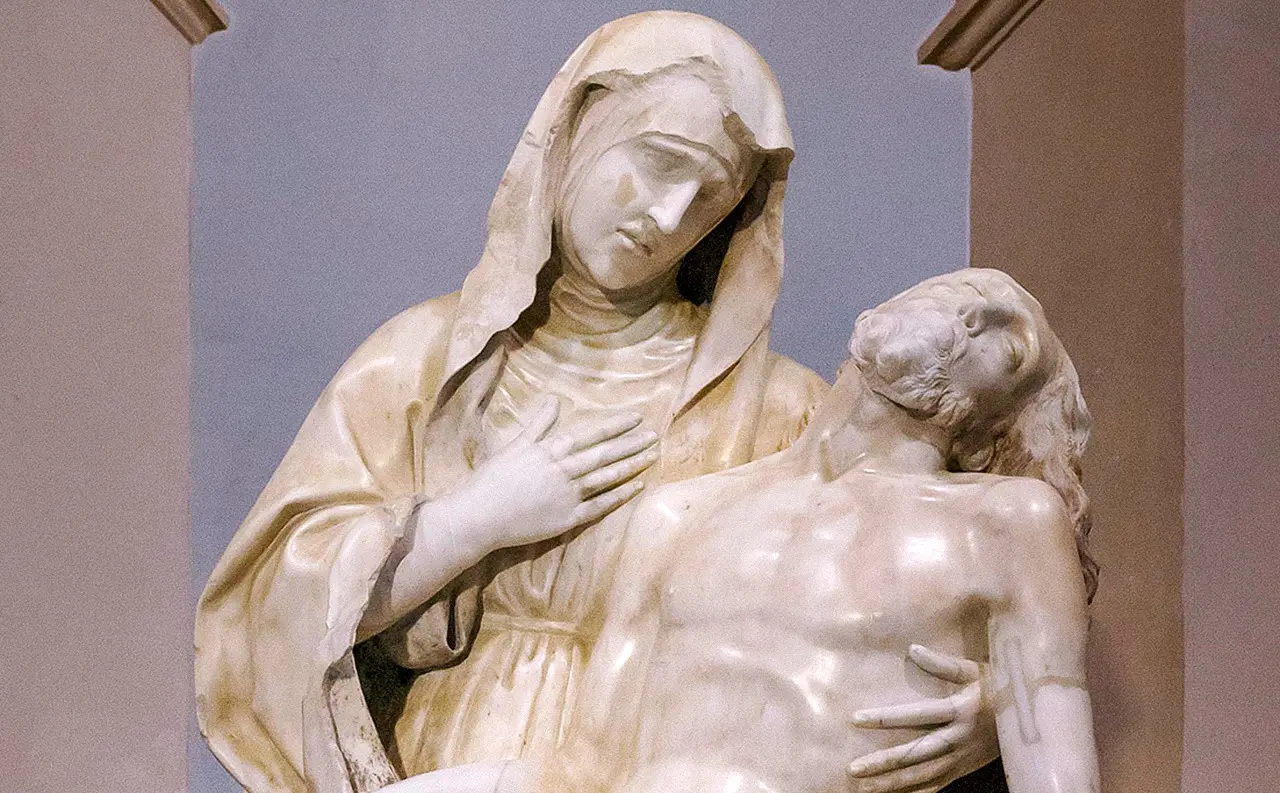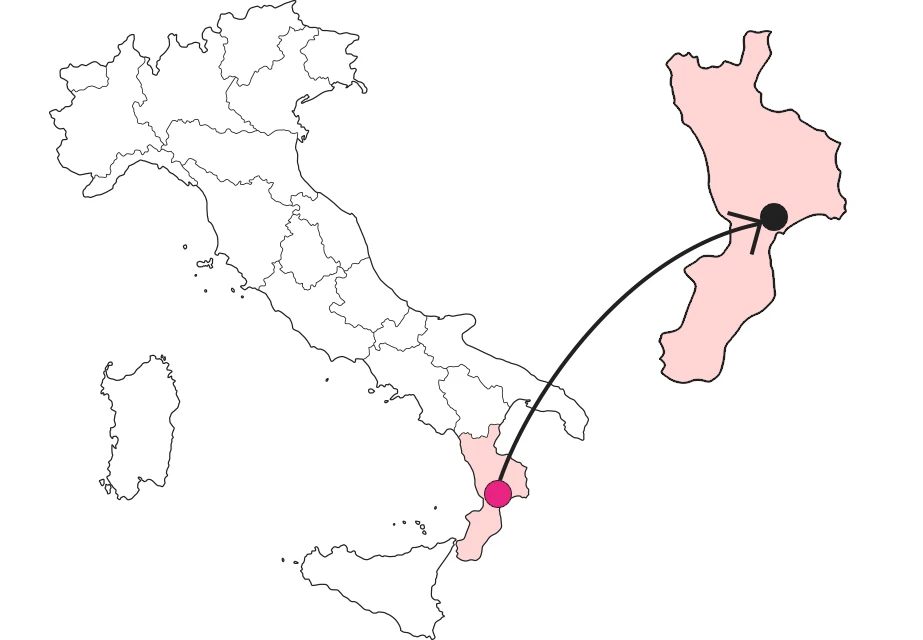





Gagini's Pieta
A beauty so composed and elegant that not even an earthquake could scratch her for real



Where

What it is and where it is
She appears in a niche painted in trompe-l'oeil. She could not afford a real one because she arrived here reeling from an earthquake, wounded and disoriented. Yet the luster of the white Carrara marble that composes it still radiates the solemn dignity of the pain of the Virgin holding the dead Christ in her lap. One hand holds her son, now abandoned to death, the other rests on her heart, as if trying to infuse some of her life, or at least her infinite love, into the lifeless body.
Why it is special
Gagini's mastery in shaping the cold marble into such intense and profound pain is truly impressive. And despite the composure of the composition, these feelings are amplified and made universal with the help of the base. Right here are depicted in bas-relief St. Michael the Archangel, St. Thomas Aquinas trampling Averroes, surrounded by a group of people reading, and St. John the Baptist, witnessing what happened.
Not to be missed
If we then focus on the face of Christ, the Mother's emotions are taken in but dissipated by the serenity there. It is no longer a son lost in death, but the Son awaiting resurrection. To the most daring, it may seem like a kind of prophecy about the fate of the statue itself: crushed and damaged by the 1783 earthquake, it waited decades in oblivion, only to be restored in Florence, and displayed in the Mother Church of Soverato Superiore.
A bit of history
Antonio Gagini, from the Palermo branch of the artist family, left works throughout Calabria, including this Pietà completed in 1521. He made it for the convent of Santa Maria della Pietà, and here it remained until the 1783 earthquake, which severely damaged both the structure and the statue. Following this event, the convent was abandoned, and the sacred furnishings divided between Soverato and Petrizzi. The "Deposition" in particular was the cause of a series of disputes between contenders, until, it was placed on an ox cart without a driver, and entrusted to the will of God...and the oxen took the road to Soverato.
Trivia
The origin of the raw material used by the sculptor is shrouded in legend. It is said that it was Blessed Zumpano who searched for the block of marble that would be carved. His search led him as far as Messina, but while sailing on the strait, he noticed a boat trying in vain to retrieve a block of marble that had sunk in a cloudburst. The friar then, began to pray and, lightly pulling the last remaining rope attached to the sunken stone, lifted it to the most convenient spot for recovery. Such was the wonder it aroused in the sailors that he converted the ship's master.
Enter the Map of Italy's Undiscovered Wonders and find treasures where you least expect it... Inspire, Recommend, Share...
Contacts
The Map thanks:
In the Community
Enter the Map of Italy's Undiscovered Wonders and find treasures where you least expect it... Inspire, Recommend, Share...
Where

Contacts

